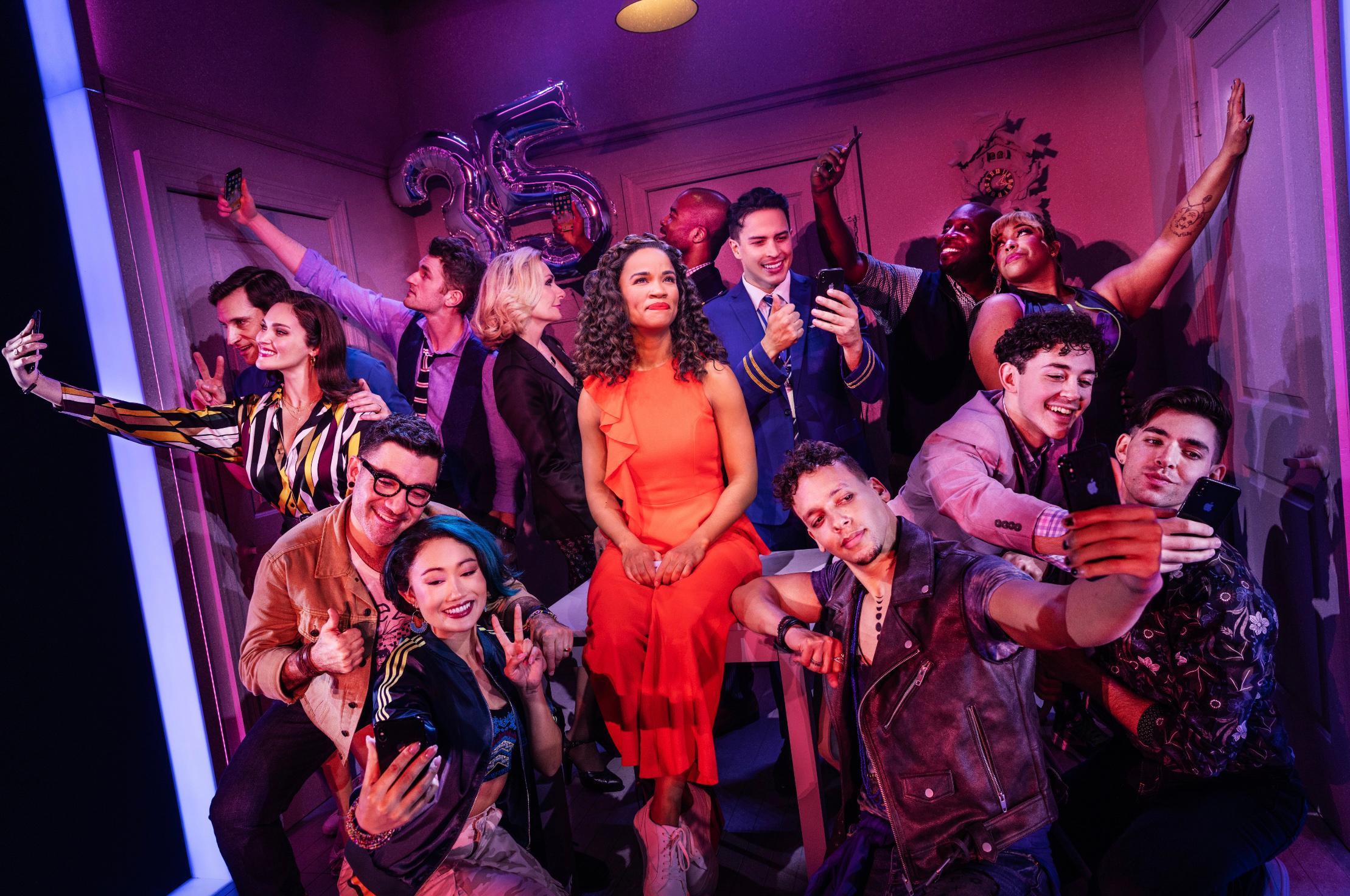Theater review: Contemporary revival of classic musical ‘Company’ is something to be celebrated
Sitting center, Britney Coleman as Bobbie contemplates the societal pressures of turning 35. Until Aug. 18, the critically acclaimed musical “Company” will be showing at the Hollywood Pantages Theatre. (Courtesy of Matthew Murphy for MurphyMade)
“Company”
July 30 - Aug. 18
The Hollywood Pantages Theatre
Price Varies





By Talia Sajor
Aug. 6, 2024 12:48 p.m.
This post was updated Aug. 11 at 7:05 p.m.
Although the party may be over, “Company” is far from blowing out its candles anytime soon.
Until Aug. 18, the partygoers of “Company” will be celebrating on the Hollywood Pantages Theatre stage. The five-time Tony-winning revival follows bachelorette Bobbie (Britney Coleman) as she grapples with the pressure from her married friends to settle down. Coupled with the musical and lyrical prowess of Stephen Sondheim, the witty dialogue delivered by the powerhouse ensemble weaves together a masterful contemporary exploration of relationships and loneliness.
[Related: Theater review: Despite intricate sets and moving story, room for growth remains in ‘tiny father’]
Credited to the innovation of director Marianne Elliott, the production delivers a modern-day remake of the 1970 original, incorporating a same-sex couple and swapping the traditionally male Robert for the female role of Bobbie. As the musical centers on Bobbie, both single and freshly turned 35, the decision to gender-swap emphasizes the external pressure women face to settle down by a certain age.
Outside of casting, Elliott’s updated oversight additionally incorporates itself within clever art direction. Tactically placed “35s” are positioned on different set pieces throughout various scenes, serving as an impending reminder of Bobbie’s age, and simplistic white furniture and the white noise of the bustling city immerse viewers into a realistic portrayal of the everyday life of the New Yorkers.

Furthermore, the lighting design successfully guides spectators through Bobbie’s life, utilizing a more natural light during conversations with her friends, while intensified spotlights contrast with darkness to emulate her inner thoughts. Bobbie’s mental state is strikingly conveyed by the visual motif of the couples repeatedly calling out her name with fog cascading on their figures, providing an eerie glimpse of how her friends’ words recurrently haunt her.
The plot follows a nonlinear timeline, scattering vignettes of Bobbie and her interactions with each couple in different scenarios. Every scene successfully captures the complexities of marriage with unmistakable humor, which is boosted to the next level by the impeccable comedic timing of the cast.
From recovering alcoholic Harry (James Earl Jones II) sneakily downing a sip of bourbon to the straight-laced David (Matt Bittner) getting high, each character shines in their own quirky light. Not a single line goes unreacted to by the audience, attributed to the brilliant playwriting of George Furth and the delivery by the entire company, who command the stage both individually and as a unit.
While the writing and cast prove themselves to be the beating heart of the show, the music is the soul that leads “Company” to be the critically acclaimed classic that it remains after decades. Sondheim’s force as a composer and lyricist bleeds through every note and chord, evoking all of the emotions in the human psyche. His ability to musically elicit anxious dread from the perfectly rhythmic rapping of Matt Rodin as groom-to-be Jamie in “Getting Married Today,” as well as comical depreciation sung in swing-like harmonies by Bobbie’s three suitors during “You Could Drive a Person Crazy,” exemplifies why Sondheim is the most notable name in musical theater history.
Perhaps where the true core of Sondheim’s artistry comes into play is during the final song “Being Alive,” arguably the most famous song from the musical, and for good reason. Lyrically, the piano-driven ballad taps into the innate human desire to love and be loved in return, exploring the emotional and physical vulnerability that comes with romantic commitment. The piece is everything that Sondheim excels at, with intricate words poetically woven together in ways that delve into one of the many complex universal experiences that remains relevant even after over 50 years.
[Related: Theater review: Immersive set-building enables ‘The Hope Theory’ to connect with viewers]
Even though Coleman vocally nails the number with her dulcet belt and crystal clear tone, her acting narrowly misses the emotional intensity necessary to drive home its impact. Despite this, Coleman still delivers every phrase with care and precision enough to carry Bobbie’s final revelation as to what it means to be alive.
Whether or not Bobbie’s birthday wish came true, audience members will undoubtedly be wanting to ring in another round of “Company.”
